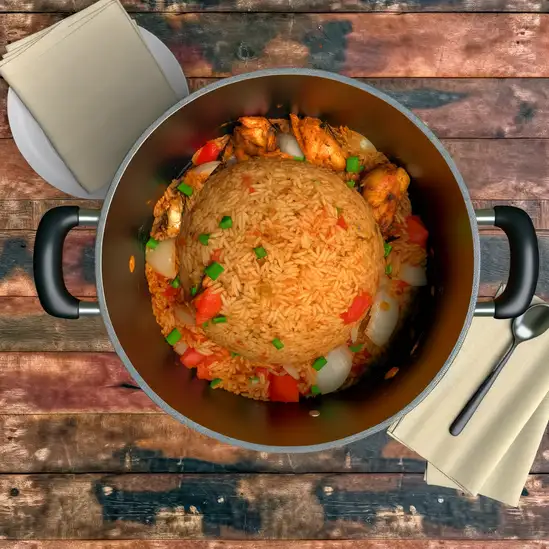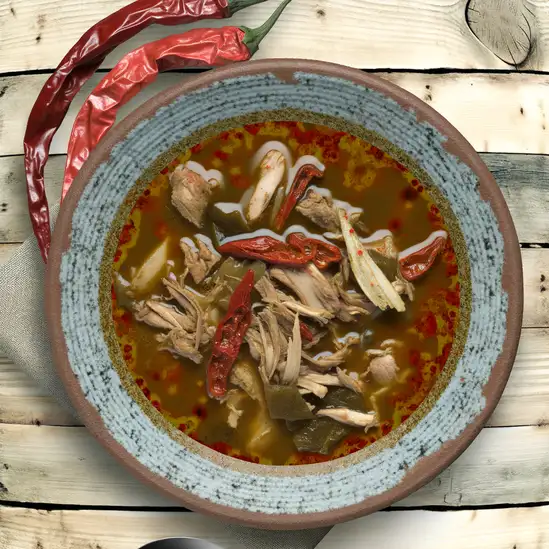



Lagos pulses with an energy that grabs you the moment you step off the plane. It’s a city that never really sleeps,where the hum of traffic blends with the laughter of street vendors and the distant beat of Afrobeat music spilling from open windows. Walking through its bustling markets,you’re hit by a kaleidoscope of colors—vibrant fabrics fluttering in the breeze,fresh spices filling the air with a warm,earthy aroma,and the sizzle of street food grilling nearby. It’s a sensory overload in the best way,making you feel alive and part of something electric. What makes Lagos truly special is its spirit—a mix of resilience,creativity,and warmth. The people here are endlessly welcoming,quick with a smile or a story,and proud of their city’s rich culture. Whether you’re exploring the art galleries in Lekki,catching a sunset by Tarkwa Bay,or dancing the night away in a lively bar in Victoria Island,you’ll sense a deep-rooted passion for life that’s contagious. Lagos is a city of contrasts,where modern skyscrapers rise alongside traditional markets,and the Atlantic Ocean kisses sandy beaches just a short drive from the urban rush. It’s messy,vibrant,loud,and beautiful all at once. If you’re ready to dive into a place that challenges your senses and leaves you with unforgettable memories,Lagos is waiting with open arms.
The information on this page is currently being reviewed by Tripkliq and should be used as a guide only
Eng word: Hello
Eng pronunciation: Pe-leh oh
Local language: Pẹlẹ o
Eng word: Goodbye
Eng pronunciation: Oh dah-boh
Local language: O dabo
Eng word: Thank you
Eng pronunciation: Eh sheh
Local language: E se
Eng word: How much
Eng pronunciation: Eh-loh nee
Local language: Elo ni
Eng word: Toilet
Eng pronunciation: Ee-leh ee-gbon-seh
Local language: Ile igbọnsẹ
Eng word: Help me
Eng pronunciation: Rahn mee loh-woh
Local language: Ran mi lowo
Eng word: Yes
Eng pronunciation: Beh-eh-nee
Local language: Bẹẹni
Eng word: No
Eng pronunciation: Rah-rah
Local language: Rara
Eng word: Excuse me
Eng pronunciation: Eh mah bee-noo
Local language: E ma binu
Lagos was originally inhabited by the Awori subgroup of the Yoruba people. It was founded in the 15th century and was initially known as Eko.
In the late 15th century, Portuguese explorers arrived in Lagos. They named the area 'Lagos' after a coastal town in Portugal, marking the beginning of European influence in the region.
Lagos became a British colony in 1861. The British influence led to significant infrastructural development, including the construction of roads, railways, and public buildings.
Lagos served as the capital of Nigeria from 1914 until 1991. During this period, it was the political and administrative center of the country.
Lagos was the site of Nigeria's independence celebrations on October 1,1960. The city played a crucial role in the country's journey to becoming a sovereign nation.
Established in 1957, the National Museum Lagos houses important artifacts and exhibits that showcase Nigeria's rich cultural heritage and history.
Balogun Market, one of the largest markets in West Africa, has been a bustling commercial hub in Lagos for decades. It offers a wide variety of goods and is a testament to the city's vibrant trade culture.
Lagos Island is the historical heart of the city. It is home to many colonial-era buildings, including the famous Tafawa Balewa Square, which was the site of Nigeria's independence celebrations.
Lagos hosts numerous cultural festivals, such as the Eyo Festival, which dates back to the 19th century. These festivals celebrate the city's rich traditions and attract tourists from around the world.
In Lagos, the most common Power Adaptor is Type D, Type G.



A flavorful one-pot dish made with rice, tomatoes, onions, and a blend of spices, often served with fried plantains and grilled chicken or fish.

A spicy broth made with meat or fish, flavored with a variety of spices and herbs, often served as an appetizer or a remedy for colds.

Pounded yam is a starchy side dish made from yam, served with egusi soup, which is made from ground melon seeds, vegetables, and meat or fish.

Spicy skewered meat, typically beef or chicken, marinated in a blend of spices and grilled, often served with sliced onions and tomatoes.

A steamed bean pudding made from blended black-eyed peas, peppers, onions, and spices, often served as a side dish or snack.

A rich spinach stew made with a variety of vegetables, peppers, and meats, typically served with rice or pounded yam.

A spicy cow foot dish cooked in a rich palm oil sauce, flavored with potash and served with a sprinkle of utazi leaves.

Deep-fried bean cakes made from black-eyed peas, onions, and spices, commonly enjoyed as a breakfast dish or snack.
Imagine stepping into a place where the air carries a salty tang from the ocean,mingling with the earthy scent of fynbos and the distant hum of lively street markets. That’s Cape Town for you—a city that feels alive in every corner,where rugged mountains meet endless blue seas,and every sunset paints the sky in fiery oranges and pinks. Walking through its neighborhoods,you’ll hear a mix of languages and laughter,the clinking of glasses in cozy cafés,and the rhythmic beats of local music spilling out from tucked-away venues.
Cape Town’s character is a vibrant tapestry woven from its rich history and diverse cultures. You can wander through the colorful houses of Bo-Kaap,taste the spicy aromas of Cape Malay cuisine,or explore the bustling V&A Waterfront where fresh seafood and artisan crafts come alive. The city pulses with creativity—from street art that tells stories of resilience to galleries showcasing contemporary African talent. It’s a place where tradition and modernity dance together effortlessly.
What really stays with you is the feeling of space and possibility. Whether you’re hiking up Table Mountain,feeling the cool breeze on your face,or sipping a glass of local wine while watching the sun dip below the horizon,Cape Town invites you to slow down and soak it all in. It’s a city that doesn’t just welcome you—it wraps you in its warmth and leaves you dreaming of coming back.
Located on the Zanzibar Archipelago,this city is famous for its white sandy beaches,crystal-clear waters,and the historic Stone Town,a UNESCO World Heritage Site.
ExploreIf you ever find yourself wandering through Victoria,the capital of Seychelles,you’ll immediately notice its laid-back charm mixed with a vibrant pulse that feels both intimate and alive. It’s not a sprawling metropolis but a cozy town where the ocean breeze carries the scent of salt and tropical flowers,and the chatter of Creole,English,and French blends into a warm,welcoming hum. Walking through the colorful streets,you’ll catch glimpses of bustling markets where fresh spices,exotic fruits,and fragrant vanilla pods fill the air,inviting you to taste the island’s rich flavors.
Victoria’s character is a beautiful blend of cultures,reflected in its colonial architecture,lively street art,and the friendly smiles of locals who are always ready to share a story or recommend their favorite spot. The city feels like a crossroads of history and nature,with the iconic clock tower standing proudly as a reminder of its past,while just a short stroll away,the lush Botanical Gardens offer a peaceful escape filled with giant tortoises and vibrant tropical plants.
What really makes Victoria special is how it balances the simplicity of island life with a genuine sense of community and culture. Whether you’re sipping a freshly brewed Seychellois tea at a café,listening to the distant rhythm of sega music,or watching fishermen haul in their catch at the harbor,there’s a comforting rhythm here that invites you to slow down,breathe deeply,and soak in the moment. It’s a place that stays with you long after you leave.
Accra feels like a vibrant heartbeat pulsing through the heart of Ghana—warm,lively,and endlessly inviting. From the moment you step into its bustling streets,you’re wrapped in a tapestry of sounds:the rhythmic chatter of market vendors,the distant hum of highlife music,and the occasional honk of colorful tro-tros weaving through traffic. The air carries a mix of enticing aromas—spicy jollof rice sizzling nearby,fresh grilled fish by the shore,and the earthy scent of rain-soaked earth after a sudden tropical shower.
What makes Accra truly special is its blend of tradition and modernity. You’ll find yourself wandering through vibrant markets like Makola,where fabrics burst with color and artisans craft beautiful kente cloth,then slipping into cozy cafés where young creatives sip on rich Ghanaian coffee while discussing art and politics. The city’s coastline offers a refreshing escape,with Labadi Beach’s golden sands inviting you to relax or join locals dancing to Afrobeat rhythms under the sun.
Accra’s character is deeply rooted in its people—friendly,proud,and full of stories. Whether you’re sharing a laugh over kelewele (spicy fried plantains) or exploring the historic Jamestown district with its colonial architecture and lively street art,you’ll feel a genuine connection to the city’s soul. It’s a place that doesn’t just welcome you—it embraces you,leaving you with a sense of belonging long after you’ve left.
If you ever find yourself dreaming of a place where the ocean breeze carries the scent of spices and salt,Mombasa is that kind of city. It’s a vibrant,sun-soaked coastal town where the rhythm of life feels both laid-back and alive. Walking through its streets,you’ll hear the melodic call to prayer blending with the chatter of Swahili traders and the distant crash of waves against coral reefs. The city’s heartbeat is unmistakably tied to the sea,with colorful dhows bobbing gently in the harbor and fishermen hauling in their catch at dawn.
Mombasa’s character is a beautiful tapestry woven from centuries of history and culture. The old town,with its narrow alleys and intricately carved wooden doors,invites you to get lost in stories of Arab traders,Portuguese explorers,and local Swahili traditions. The aroma of freshly grilled seafood mingles with the sweet,warm scent of cardamom and cloves from nearby markets,tempting you to try dishes like pilau or samosas bursting with flavor.
What makes Mombasa truly special is its effortless blend of old and new,calm and chaos. You can lounge on white sandy beaches under swaying palms one moment,then dive into bustling markets or lively street festivals the next. It’s a place where every sunset feels like a celebration,painting the sky in fiery hues and promising more adventures tomorrow. Trust me,Mombasa isn’t just a destination—it’s a feeling you’ll want to carry with you long after you leave.
The capital of the Maldives,Malé is the gateway to the country's world-famous islands,offering luxurious resorts,crystal-clear lagoons,and unparalleled marine life for diving enthusiasts.
ExploreScammers tamper with ATMs to steal card information or trick tourists into revealing their PINs.
Tourists are tricked into exchanging money at unfavorable rates or given counterfeit currency during transactions.
Tourists are sold counterfeit tickets to concerts, events, or attractions, which are invalid upon arrival.
Imposters dressed as police or government officials demand bribes or fines for fabricated offenses.
Scammers pose as tour guides and offer to show tourists around, only to overcharge them or lead them to unsafe areas.
Tourists are lured into using fake public Wi-Fi networks, allowing scammers to steal personal information or hack devices.
Unregistered or unofficial taxi drivers charge exorbitant fares or take longer routes to inflate the cost of the ride.
Thieves use distractions, such as staged arguments or fake accidents, to steal wallets, phones, or other valuables from tourists.
Scammers approach tourists with emotional stories to solicit money, claiming they need help for emergencies or family issues.
Vendors sell counterfeit or low-quality goods at inflated prices, targeting unsuspecting tourists.
The use, possession, and trafficking of illegal drugs are strictly prohibited in Nigeria and are punishable by severe penalties, including long prison sentences and heavy fines. This includes substances such as marijuana, cocaine, heroin, and other controlled substances. Tourists should avoid any involvement with illegal drugs to avoid legal trouble.
In Lagos, Nigeria, smoking is generally allowed in public spaces, but there are restrictions in certain areas such as hospitals, schools, and public transportation. Some restaurants and bars may have designated smoking areas. It is advisable to look for 'No Smoking' signs and adhere to local regulations to avoid fines or penalties.
Vaping is relatively new in Nigeria, and there are no specific laws regulating its use. However, it is generally treated similarly to smoking. Tourists should exercise caution and avoid vaping in non-smoking areas or where it might be considered inappropriate.
What are other people saying about Lagos?
Recent Social posts about Lagos
There is nothing to show you for now.